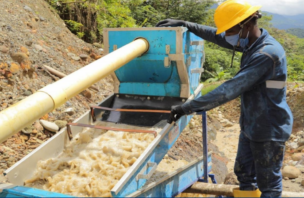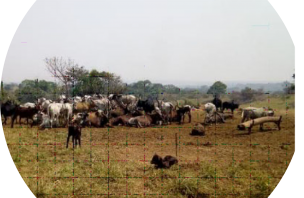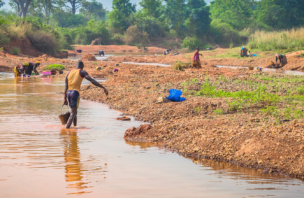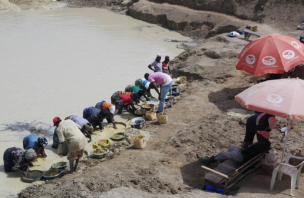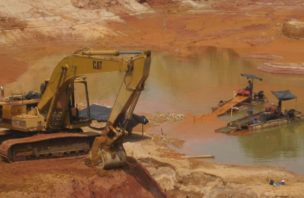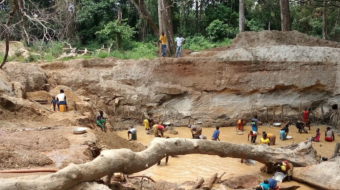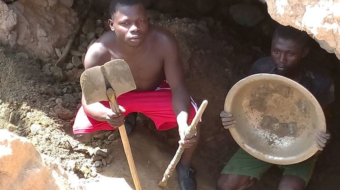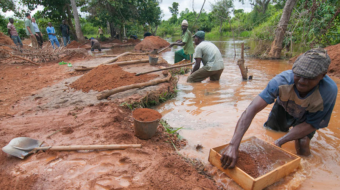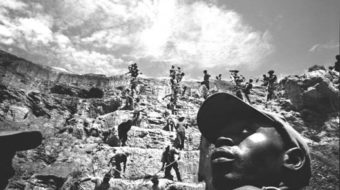Artisanal and small-scale mining (ASM), which refers to mining with minimal or no mechanization often in the informal sector, has increasingly captured the interest of governments, international organizations, and private corporations because of its growing role in national economies and its impacts on society and the environment. The artisanal mining sector also provides new opportunities for private sector partnerships who seek to invest in the production of scarce resources while maintaining a supply-chain that is compliant with international standards. Numerous types of minerals are extracted in this fashion—gold, cassiterite, wolframite, colored gemstones, diamonds, cobalt, and even coal—and the production and commercialization of many of these minerals have fueled conflict globally, with property rights struggles often at the core of these conflicts.
Artisanal miners labor under archaic and difficult working conditions and live in extreme poverty, often receiving less than 9% of the retail price of the stones they extract. A lack of internal controls leads to disconnected and often illegal mines and prevents miners from acquiring the licenses required to operate within the law, the equipment necessary to increase their gains, and the assets needed to diversify their livelihoods. Not surprisingly, miners often become incentivized to mine quickly, sell fast, and rapidly move on to new sites. These practices have devastating economic and environmental consequences, negatively impact export revenues, and prevent compliance with international agreements.
Through strengthening tenure security and clarifying property rights and using international mechanisms such as the Kimberley Process Certification Scheme (KPCS), resource conflicts can be reduced significantly while also providing incentives for mitigating environmental impacts of this extractive sector. When artisanal and small-scale miners’ rights to prospect and dig are formal and secure, they are more likely to sell through legal channels, enabling the government to track the origin of minerals and prevent them from fueling conflict.



